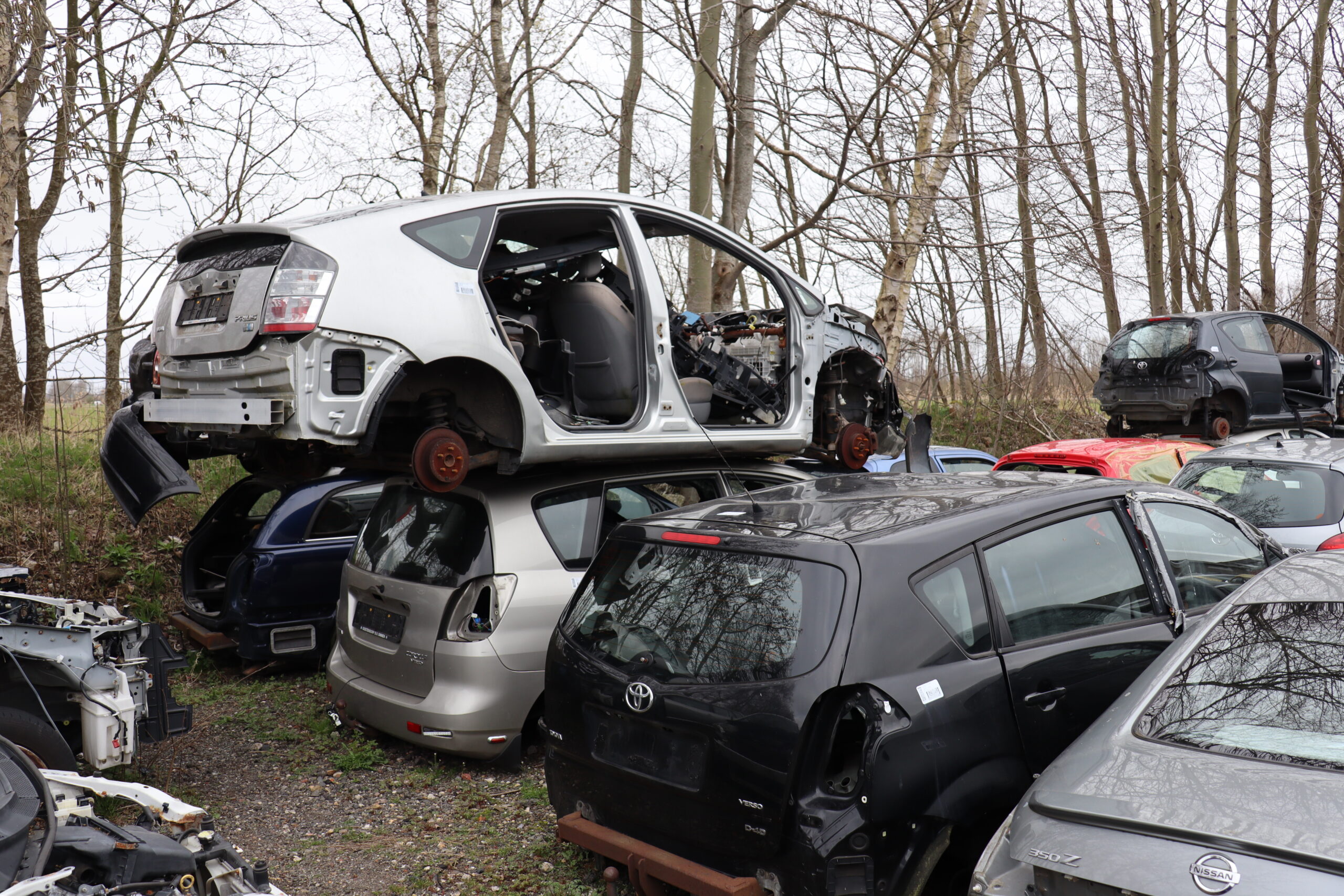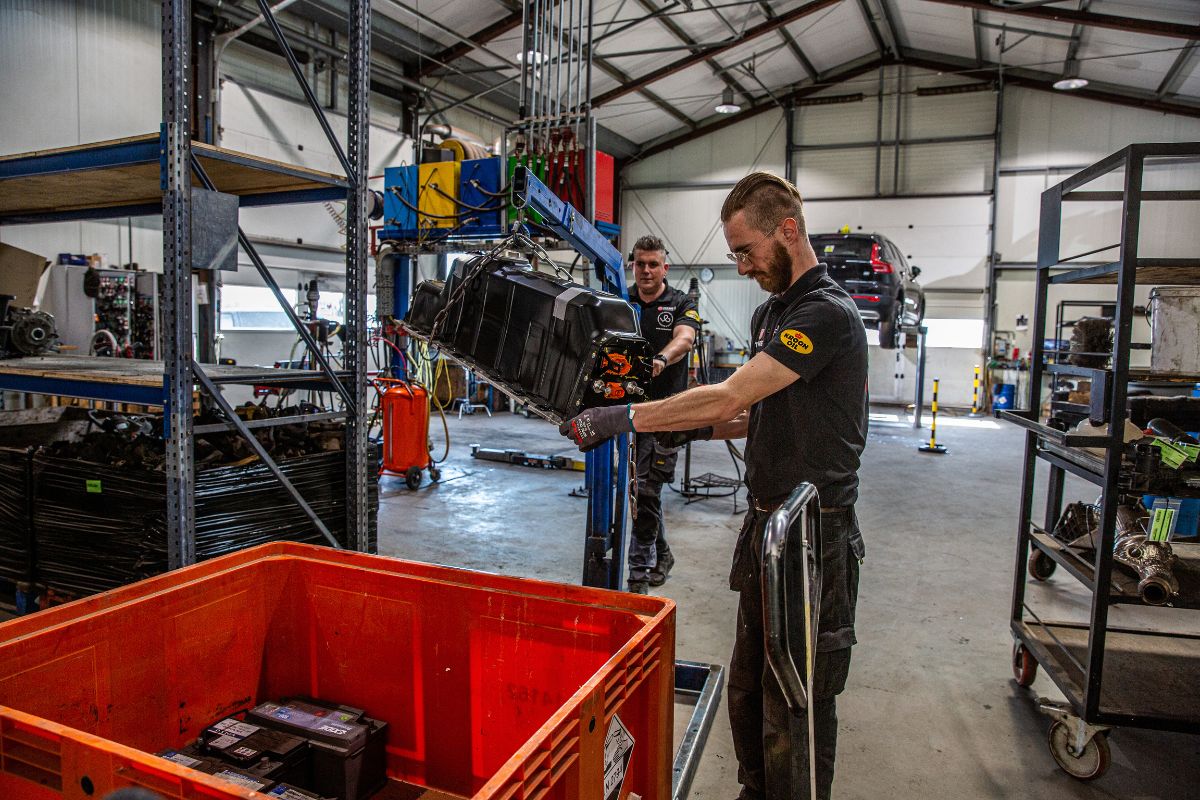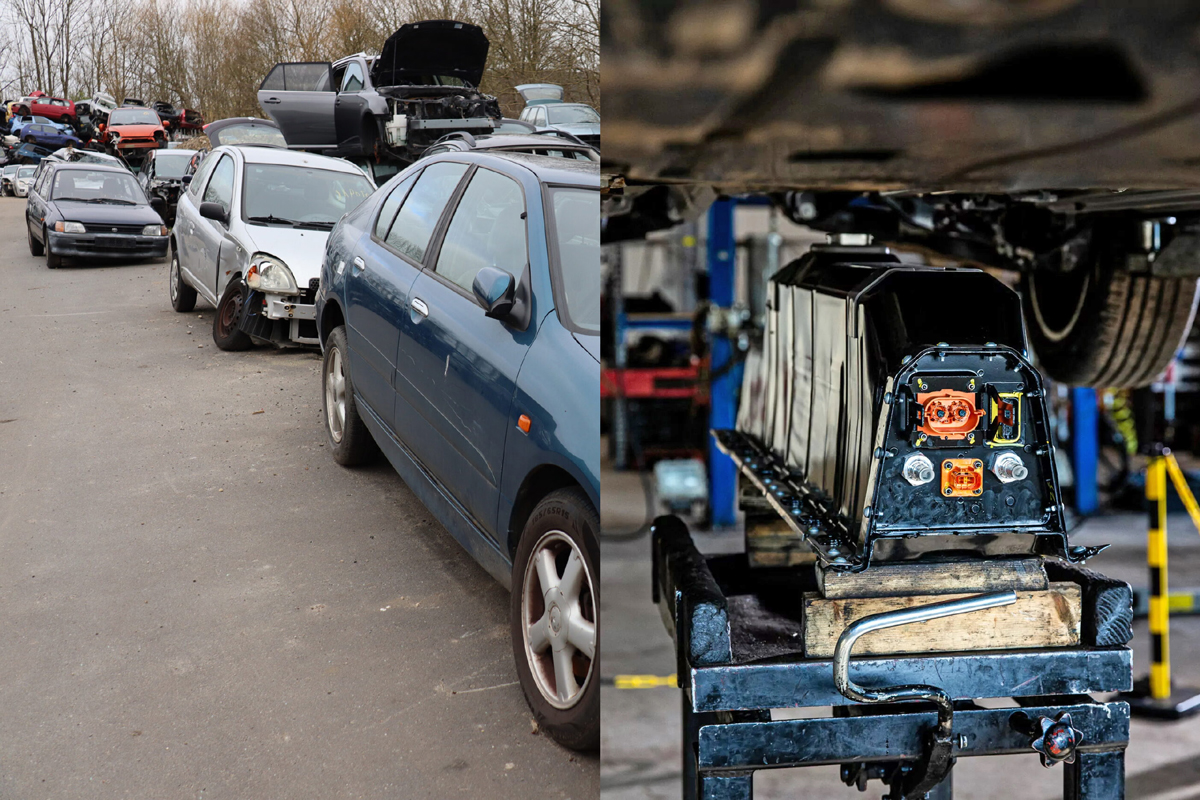Garage owner Bart Ebben, Senior first began dismantling cars because he saw a demand for impossible-to-find parts for the Snoek DS. To this very day, the — now much larger — business run by father and son Ebben deploys exactly the same strategy: responding to real-world demand from the market. And marketing plays an important role in those efforts.
Tekst Jitske van Heeswijk
The car dismantling industry has undergone drastic modernisation in recent years. We see this, for instance, in the data-driven approach at Rhenoy BV, but also in the increasingly professional way companies are marketing themselves these days. More and more car dismantling companies are devoting active attention to marketing and communication. The fact that those efforts extend beyond a monthly advertisement in a trade magazine becomes clear when talking to the marketing team at Citroën and Peugeot specialist Bart Ebben.
Marketing has been an important operational aspect in the Malden-based family business since 2009. Their two-person marketing team works hard every day to enhance the company’s reputation, create online/print ads and come up with new campaigns. Bart Ebben, Senior realised the importance of marketing early on. He invested considerable time and energy in advertising and putting in appearances at trade fairs. Peter van der Sluis has been on hand as in-house marketer since 2009 and the company is increasingly making marketing a priority area. Hans van Brunschot is a recent addition to the marketing team, one that enables them to make even more of an impact. This impact is evident in the recent campaign launched by the team: Drive ‘greener’ with used parts.
Since 2009, the company has been focusing specifically on the ‘online’ aspect of business. The online data system they use (Pinnacle) is proving invaluable in that area. Each day, it’s Van der Sluis and Brunschot’s job to present the information stored in this system as effectively as possible. “While a great deal of work goes into that, it does ensure our website is always among the first results for specific search terms. There may not be one page on our website that garners a huge number of views on its own,” Hans admits, “but if you add them all up, you’ll see our reach is quite extensive.” Contact with colleagues is crucial in this regard. After all, the information must be up-to-date.
“Our marketing strategy reflects the company’s specialisation,” Van der Sluis explains. Which is why he’s proud that this method has resulted in requests coming in from all over the globe. “We have a strong online presence in the Netherlands, which translates into a high volume of requests and sales. Those are examples of ideas that got started in our marketing department. In that area, we were among the pioneers in our sector.”
Sentinels
Looking at the sector as a whole, they can see that the large corporations are concentrating on marketing as well, but that there is much room for improvement among the smaller companies. The marketing duo predicts that if these companies fail to innovate and develop, not only in the area of technology but definitely where marketing is concerned, they won’t be around in a few years’ time. Peter explains: “Developments have been progressing extremely rapidly in recent years; if you can’t keep pace, you’re simply done for.” Hans also underscores the importance of marketing in relation to the corporate strategy: “The fact is that marketers are often the most forward-looking people within a given organisation: they’re the first ones to see what’s ahead. That makes them a sort of sentinel within the company, too — something few businesses in this sector have.” Van der Sluis and Brunschot are also eager observers of what other companies are doing and how those businesses market themselves. After all, there’s much to be learned from competitors.
A focus on green and sustainable
The car dismantling company’s strategic annual plan for 2019 places a clear emphasis on being green and sustainable. Now, for the first time, they’ve decided to actively convey this message through a marketing campaign. The reason for choosing this approach is mostly a question of momentum. “This is the ideal moment to get this message across. The situation in France makes this clear as well (note: at garages in France, it’s been standard practice for several years now to offer customers two quotes: one with new parts and one with used parts). Secondhand parts are now truly being seen as an equally valuable alternative. While this was always the case, of course, consumer perception has finally caught up to reality.”
The pair hopes to achieve three goals through this campaign. First, they want to draw attention to the use of secondhand parts as a regular, everyday option. Tools including a billboard measuring 108m2and a widely-circulated press release are intended to help achieve this. They also hope — through trade magazines and newsletters, for instance — to inform and encourage other garage companies to use secondhand parts as well. And third, they hope to reach consumers through newsletters, the website and social media. Ultimately, it is the consumer who must actively tell the mechanic they want their vehicle repaired using secondhand parts. And the ambitions of specialist Bart Ebben don’t stop at the Dutch border. His company is communicating with and reaching consumers in Germany as well.
“Our marketing strategy reflects the company’s specialisation”
“Right now, we’re trying to get the word out that reconditioned used parts are just as good as new components, that they are cheaper and more environmentally-friendly. This does, however, require us to match the service level of the importer. Fast, easy ordering and fast, reliable shipping. Our internal organisation has to take this into account. There’s so much more to marketing than just shouting your message at the world — you have to live up to those claims, each and every day. That combination makes it really enjoyable.”
Future challenges
For now, the men are still hard at work on adding various layers to the current campaign — yet they see other challenges ahead as well. Hans: “Because Google keeps adjusting the rules of its system for rating relevance, it’s turning into a quite an uphill battle to maintain a place at the top of the Google results. So that’s one challenge. Not least because more and more companies are realising how important online marketing is.” Here too, as it always has in the past, the company is leaning into its own strengths. Its own specialisation is and remains the driving force behind the company’s marketing strategy. And they have plenty of ambitions to pursue. Hans: “If, in a year’s time, we have a reputation as ‘that green company that trades in used parts’, my year will have been a success.”





